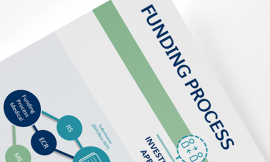Franklin Templeton has been delivering exceptional asset management for institutional, retail, and high-net-worth clients across 25 countries around the globe since 1947.Their association with India dates back to over 2 decades as an investor.
On April 23, 2020,Franklin Templeton Trustee Services Private Limited voluntarily decided to wind up its suite of six fixed income funds.The decision was taken in light of the severe market dislocation and illiquidity caused by the Covid-19 pandemic but it was taken with the objective of safeguarding the interest of our investors.
The Supreme Court on December 3, 2020 issued an interim order allowing the Trustee of Franklin Templeton to seek consent of the unitholders for the winding up of the six schemes. The fund house will now be proceeding with next steps to seek unitholder consent for the winding up of the six schemes. The meeting will be done through electronic mode. The fund house has said that voting will begin on December 26 at 9 am and go on till December 28 at 6 pm. There will also be a unitholders’ meeting with the trustees on December 29 from 4:30 pm to 5:30 pm online, where unitholders will get a chance to talk to the fund’s trustees. Unitholders will also be allowed to vote during this meeting.
The objective of the voting exercise is to seek, by “simple majority” of votes cast, a consent to implement the decision taken by the Trustee to wind up the six fixed income schemes and thereby enable an orderly liquidation of assets and distribution of investment proceeds. Consent will be sought from the unitholders for each scheme separately.
Unitholders will be having two choices:
Vote “Yes” in favour of the orderly winding up – This will mean opting for an orderly windingup of the schemes with a potential to realize fair value from the assets. This will allow the Trustee to proceed with the next step which is to seek further approval from unitholders for appointment of a person under regulation 41(1) to carry out the winding up. This will also mean that the schemes will not be required to make a distress sale of portfolio securities (as redemptions are not allowed). This option will enable recovery of maximum value of securities held by the Scheme.
Vote “No” against the orderly winding up – This will mean opting for the Schemes to be reopened for purchases and redemptions. It is likely the schemes will receive a rush of redemptions requiring the schemes to undertake an emergency liquidation of portfolio securities.
Franklin Templeton Asset Management (India), President, Sanjay Sapre, clearly stated the importance of e-voting for the orderly winding up and believe this will result in the best possible outcomes for unitholders under the current circumstances. In normal market conditions, the opportunity to liquidate assets at fair value will increase with time
He also added that an orderly winding up does not mean a lengthy wait for return of monies. Once we receive a majority ‘Yes’ vote in favour of the orderly winding up of the schemes, the Trustee will proceed with a second vote to seek approval of the unitholders as required under regulation 41 of SEBI (Mutual Fund) Regulations 1996 to authorize the Trustee, or any other person to proceed with the winding up of the schemes. The schemes will then be able to distribute the cash already available in the schemes and make further payments at regular intervals as the schemes receive cash-flows from monetization of assets.
The person authorised under regulation 41 would then be able to distribute the cash already available in the schemes and make further payments at regular intervals as the schemes monetize assets and receive cash-flows.



